Shipping 2050 -
Resource
and activities to inspire the next generation to build the future of shipping and water transport
Aims to inspire young people by engaging them in redesigning ships, cargo handling and ports and the use of AI and advanced technologies in response to the issues facing waterborne transport in the future.
Why is this needed?
International shipping
is a ‘behind-the-scenes process’. It maintains the globalised society we have today
with over 90% of everything we touch now transported by sea. The process is
facing a crisis in the face of increased demand and global warning. (see map created by London-based data visualisation studio Kiln). Young people need to understand the issues and how engineers work
together to create innovative solutions. This project
alerts young people and their parents to the real-life opportunities in
engineering in the maritime sector.
What the students say - "More creative than I was before" | "Learnt more about ships and fuels" | "More confidence to speak out in front of my class" | "More engineering jobs than I think" | "Hard to work in a group" | "I now what can go wrong in a team"
How does the project work?
Engineers from the
maritime sector will work with 13 to 18 year olds on-board the MV Balmoral, an
inshore passenger vessel moored in Bristol's Harbour. Students work with a team of engineers, maritime architects, shipwrights, technologists and people who run ports. Young people will work in small teams with an
engineer mentor. First, they will explore our ship and attend presentations on the future of shipping and inland waterways. They then go on to build an annotated model of a concept ship for the future. Models,
ideas and concepts can be completed in a day and displayed on the ship during the Bristol Harbour Festival when over 4000 people visit the ship.
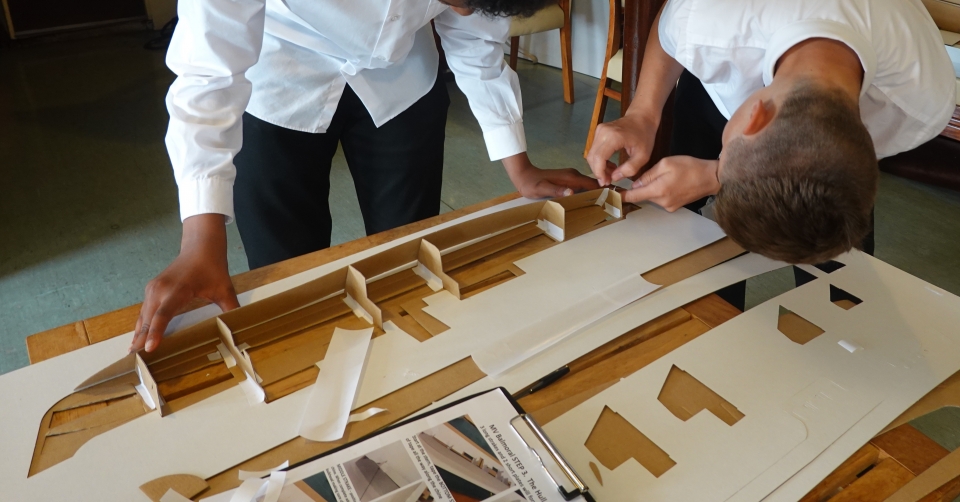


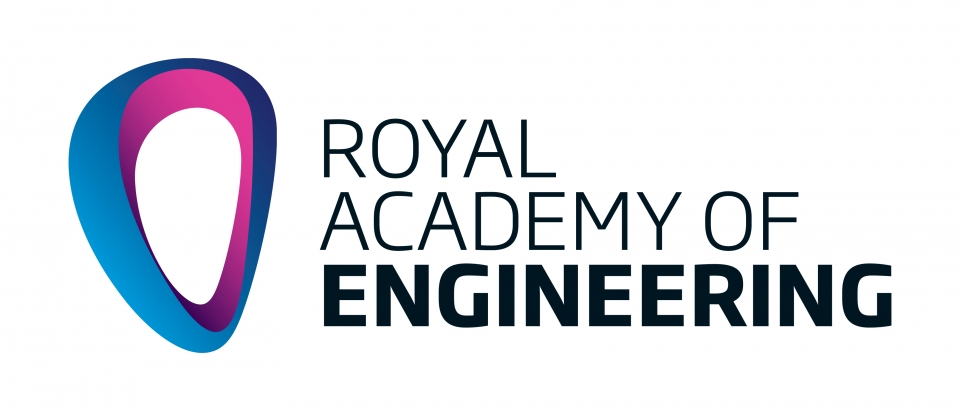
See the activities leading to an Awards Event at Bristol Harbour Festival
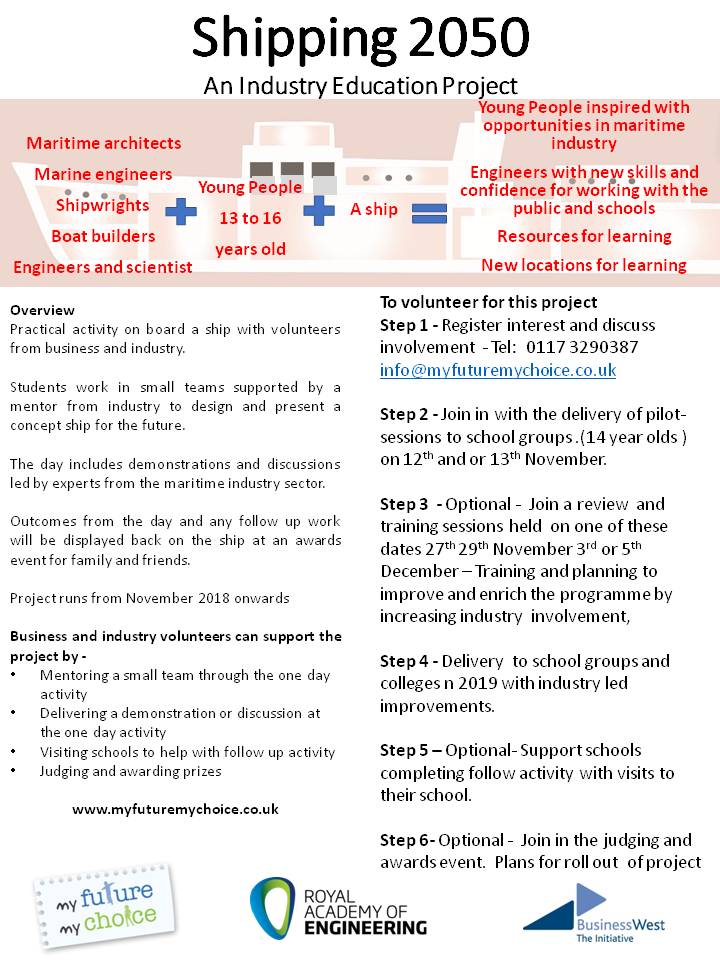
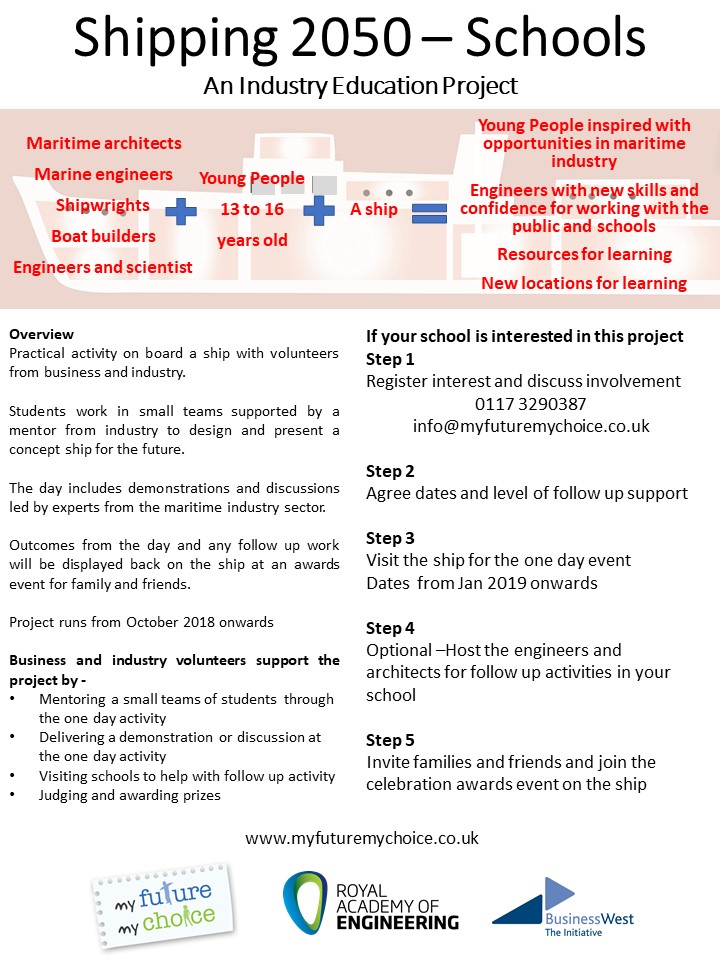
To get involved - We are looking for more Businesses and universities to help develop the activity. Please contact us to discuss
- Engineers to mentor a team of 4 students
- Spokespeople and experts to run displays, demonstrations or
discussions about the issues and innovations. These could be about any
aspect of this sector - from ship-design to hi-tech digital functions
that manage trade finances
- Advice and support to make compelling learning demonstrations
- Access to venues, work sites and ships for young people
We are interested to hear from Schools
- Contact us to discuss level of involvement
- KS3 / KS4 / Post 16
- One day activities
- Extended programme of study with support from industry expert
- Community and family engagement
Project partners include
Project partners and volunteers include -




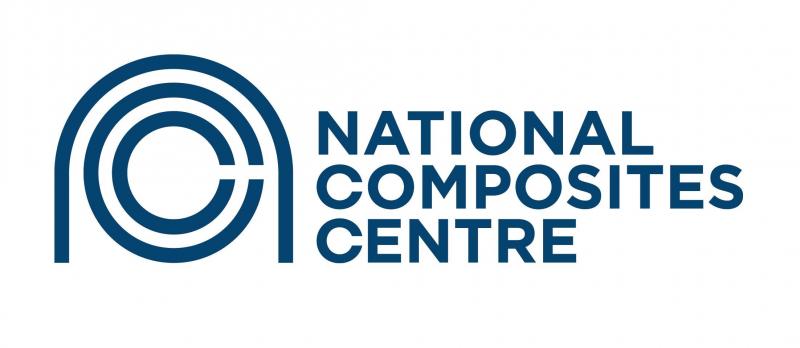







Posters created through the Institute of Marine Engineering Science and Technology used by schools and college students to help them design concept ships for the future






